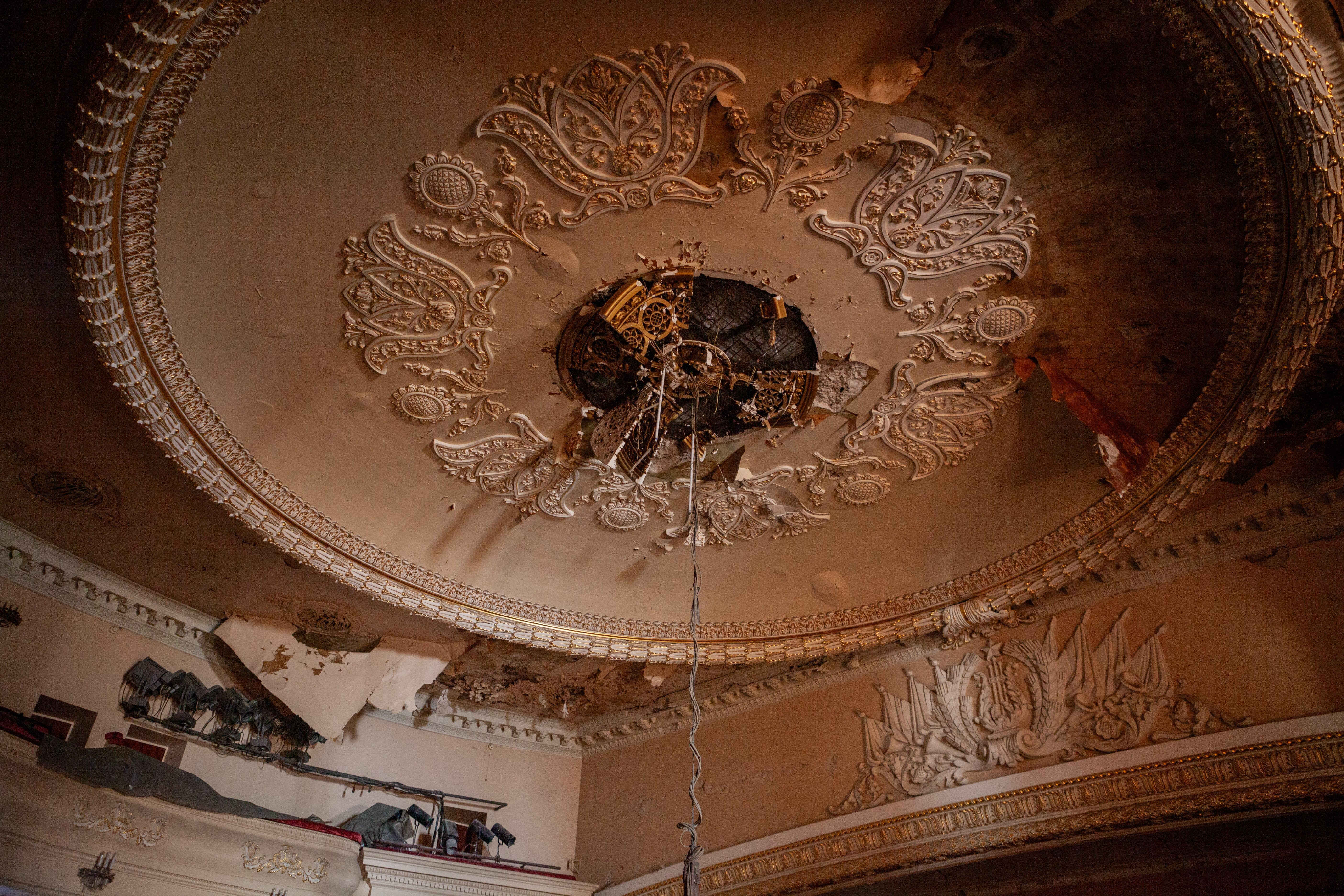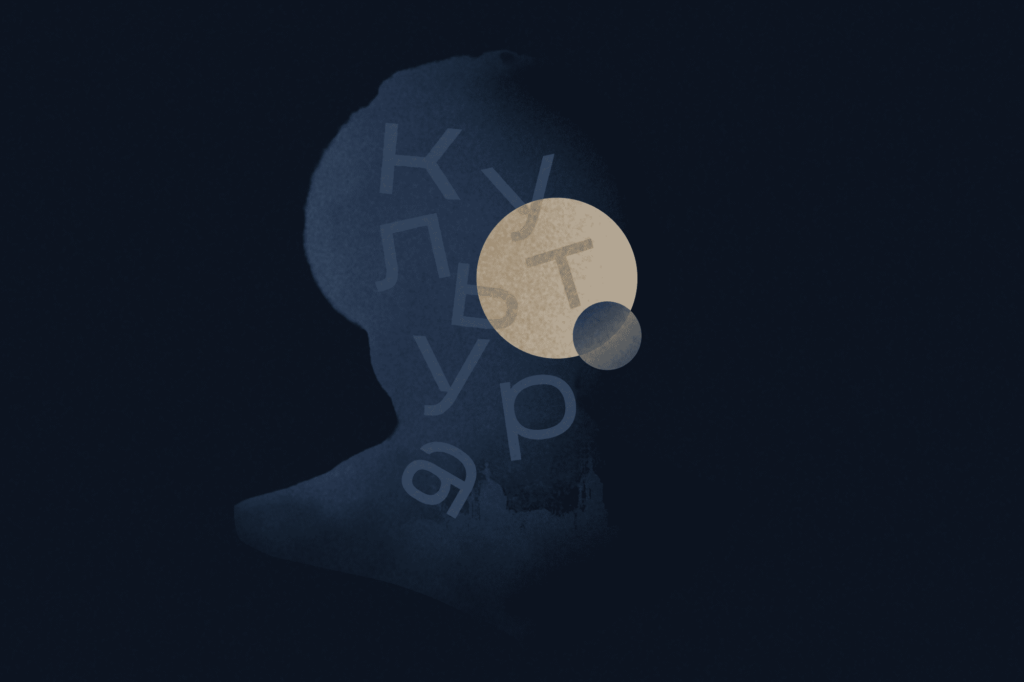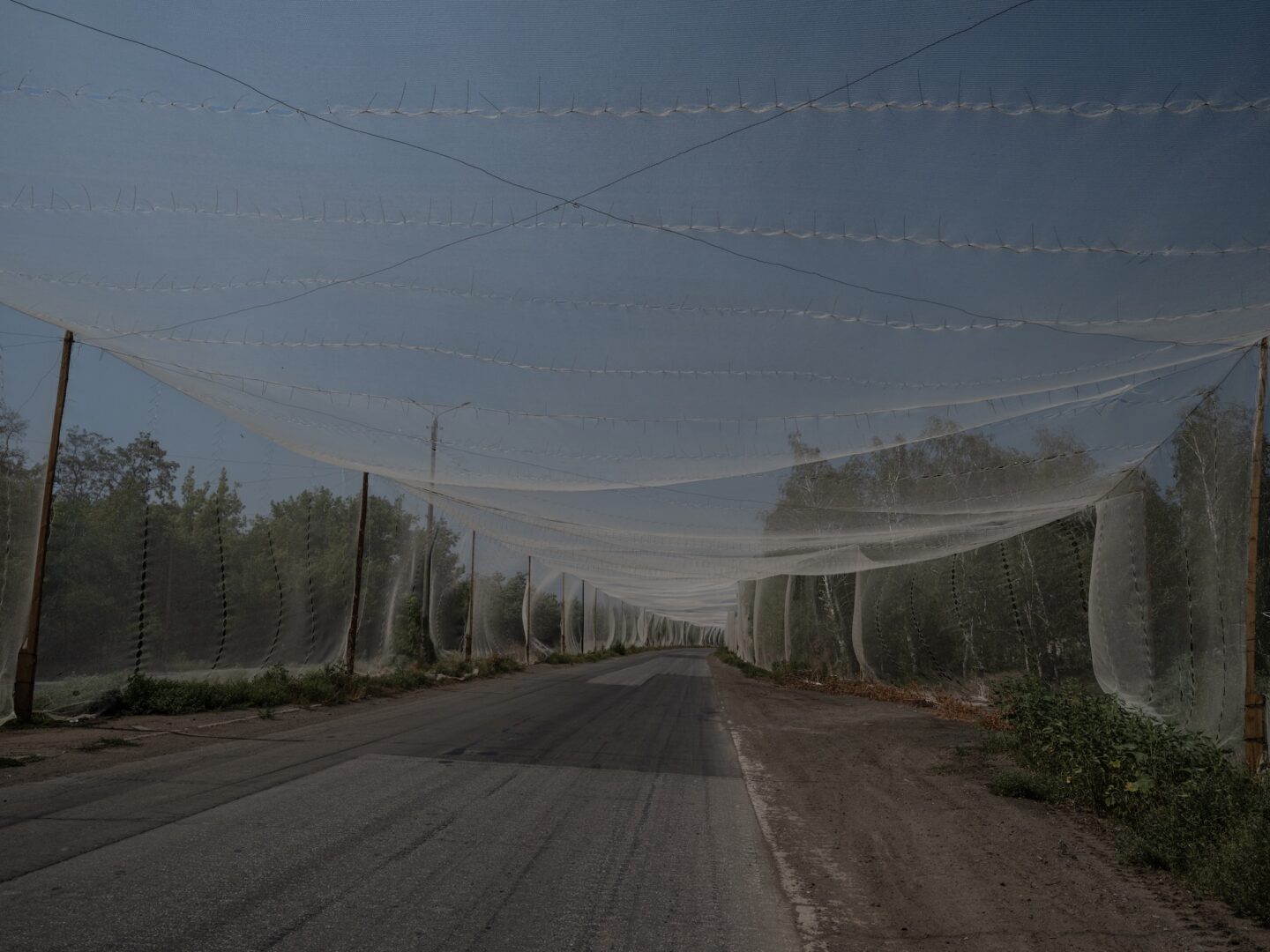Shrapnel
Months later, Olha sits across from the stage, reflecting on how that tiny piece of shrapnel, having flown those hundred meters from above the theater, found its way between her daughter’s ribs.
Sofiia had taken the stage — small and simple, unlike the grand theater opposite. But for the artistic little child, the adoring eyes of her family are enough. The aged wooden boards, worn down by local musicians’ feet, caught her light steps. Olha and Sofiia had just arrived by train from the capital. An old friend took them to the city center, then they were supposed to go visit Olha’s parents to celebrate the Apple Feast of the Saviour.
Olhas’s friend asked Sofiia if the girl had everything for school. She had some left, but she was waiting for her father to choose something together. Her dad is in the military and would get a leave just before the school year started.
Suddenly, a low rumble filled the air. Olha glanced at the sky and saw the missile. She ran toward her daughter, but the blast wave engulfed them both. She saw Sofiia fall to the stage, blood pouring from her body near the abdomen.
Strike and Guilt
Chernihiv seemed as safe as Chernivtsi or Uzhhorod, considering the shellings. The last time the city had been hit was in April 2022, during the Russian retreat. The fear had faded.
On August 19, 2023, at half-past eleven, Russians struck. A Russian missile exploded over the roof of the drama theater, near a cafe and outdoor terraces that used to be bustling with visitors on warm days, next to a 13th-century church where a service had just ended. People were leaving with baskets full of apples after the Feast of the Savior.
At 10 a.m., a gathering of drone manufacturers and aerial reconnaissance schools began in the theater. People near the theater at the time didn’t and couldn’t know about this event, as the location was kept secret and participants were only informed a few hours prior. All this was approved by the regional military administration. Such gatherings had been held in other cities, including Kharkiv, which is also close to the border. This time, the Russians struck.
Immediately after the strike, the public directed blame at the administration and organizers of the event — the Victory Drones project, which trains military personnel in aerial reconnaissance and provides drones to the front. Criticism targeted people like veteran and volunteer Mariia Berlinska. Some argued that either no military events should take place in Chernihiv so close to the border, or that they should have chosen a more remote location, away from the city center. Public statements focused on the wrongness of the location and responsibility of those who authorized and organized the event.
The Security Service of Ukraine opened three cases: one for violations of laws and customs of war, and two related to spreading information on the Ukrainian Armed Forces’ locations and movements, and for official negligence. The latter two suggest there will be named culprits, possibly among local officials, maybe even the mayor. However, no charges have been filed yet, so the story isn’t over.
The Prosecutor General’s Office speculated that the Russians programmed the missile to explode in the air to harm as many people as possible. After all, if they’d targeted only drones, the missile could have pierced through the theater.
Besides six-year-old Sofiia Holynska, six others were killed. Lawyer Volodymyr Vasylenko, a father of four, who was passing the theater with his son. Nazar Yushchenko, a student at the local polytechnic, who had come by to grab his usual coffee at the cafe across from the theater. “An incredible English teacher” from the same polytechnic, Svitlana Kormiltsina, who was walking her dog. Nataliia Toria, from the polytechnic’s directorate, who went to church to consecrate some apples with her mother and daughter. She had just left the church service and headed to the square. Her basket was found by her body. Oleksandr Onishchenko, a power engineer, who had his birthday and had come with his wife for a christening at a friend’s place. Their minibus was driving on the roundabout near the theater. Dmytro Mahlich, a military man since the full-scale invasion began and a former auto electromechanic. The entire city sent him off kneeling.
Big Stage
The Chernihiv Drama Theater had already stopped operations in the early days of the full-scale war when Russian forces tried to capture the city. Many actors moved their families into the theater’s basement, where there had once been a café serving coffee and wine during intermissions.
Upstairs, soldiers were stationed. None of them revealed themselves, and none were exposed by others. During those days, while under Russian fire control, Chernihiv’s top priority was defending itself.
Nataliia Rybenok has been acting in the Chernihiv drama theater for twelve years. She came here straight from college in Dnipro, where director Andriy Bakirov had been scouting for new actors. The twenty-year-old actress was struck by the building’s size, the maze-like corridors reminiscent of the library in Umberto Eco’s The Name of the Rose, the 800-seat auditorium, and the greatness of the darkened stage. On that stage, Bakirov told the newcomers that, while their young ambitions might draw them to Kyiv, they could end up bit parts for years there, Nataliia recalls. Here, they’d gain real experience — and indeed, he put them to work immediately.
Not measuring ambition by a city’s size defines the Chernihiv theater and Bakirov himself. People in Chernihiv come to see Bakirov’s plays and even travel from other cities. The drama theater is a shared experience among locals. Everyone in town has seen The Kaidash Family at least once in the last decade. I know a man who “stalked” a touring production of Thornton Wilder’s Pulitzer-winning Our Town. I’ve personally watched The Cripple of Inishmaan by McDonagh seven times.
After the Russian retreat, the theater didn’t resume shows immediately. First, they had to erase all traces of the real-life drama that had unfolded there. Then they deliberated — was it the right time to stage performances again? In mid-March, Nataliia left for Dnipro. She was uncertain: on the one hand, she wasn’t sure if it was time for theater, and on the other, she feared accepting any long-term job might mean giving up on acting. And she couldn’t do that. “Our director, Nastia Kuzyk, reached out and said, ‘Come back, we’ll stage a fairytale.’ I grabbed my things and flew back to the theater.”
Six months later, the theater resumed its season. Nataliia still struggled. “Even in serious plays, there’s dancing, there’s laughter. How do you laugh? How do you dance? How do you look at life on stage when there’s fighting nearby? The audience hesitated, too. At first, maybe twenty people came. But by March, I remember the hall buzzing during a performance of The Blind Man based on Shevchenko’s work. The audience had spoken — they needed this.”
At the moment the missile exploded over the theater, Nataliia was teaching a class. Otherwise, she might have been in the city center with her six-year-old daughter, Vasylisa, perhaps near the theater. Her daughter has grown up with her mother’s work and even acts in small projects. Director Andrii Bakirov was in his office when the windows burst open, filling the room with dust and shattered glass. “I didn’t know it was the theater, but I felt it was the heart of the city.” Theater director Serhii Moisiienko, a sturdy man nicknamed “the Minister of Culture” in his youth, had just left the theater, got into his car, and made it to the roundabout when a fiery blast shot over the building. The car door stopped a fragment that might have hit Serhiy’s stomach. Similar fragments had missed him before, in March 2022, when his house on the outskirts of town burned.
No actors were inside; they were scheduled to gather for rehearsals that evening, with the theater season due to start in a few weeks. The missile destroyed the roof and windows, but the walls remained standing. Even the two enormous chandeliers, each weighing several tons, didn’t fall.
Bakirov and Moisiienko’s first decision was clear: the walls are up — the theater will keep going. They just needed to figure out how.
While the audience area was deemed hazardous, the stage was not. So, a decision was made.
Two days later, hundreds of Chernihiv residents came to the theater. It was a mixed crowd with no single profile. They came to clean — sweeping up debris, broken glass, vacuuming carpets, washing floors and walls to rid them of concrete dust. The main stage was covered in white plaster dust. People kept scrubbing and scrubbing it, but the dust persisted, still, they scrubbed it again and again until they restored the stage.
Actress Nataliia Rybenok joined in the cleaning, and was moved to tears. The audience had come to care for their theater. Some may even never have been here before. Some discovered the dozens of maze-like corridors that had captivated Nataliia twelve years earlier. Hardly anyone wanted to miss getting a closer look as the massive chandeliers, unmoved for sixty years, were taken down.
With the audience area closed, the season opened directly on the stage — both actors and audience shared the space. They opened with Sin, a two-act “waltz of betrayal” based on a drama by Volodymyr Vynnychenko. Nataliia played the lead role of Mariia. “Sin is fully present in this play. It’s about searching for the limits of what’s allowed. The main characters test reality for allowance, the boundaries of a human being without punishment.”
On the opening night, Nataliia stepped out right in front of the audience. The distance was so short, she could reach out and touch them. Mariia was Vynnychenko’s wife, meaing a strong-willed, self-assured, emotional, and expressive woman. At the play’s start, she lights a cigarette, filling the makeshift auditorium with its scent. You feel as if you’re spying on someone’s life.
In Vynnychenko’s play, it’s the dark end of the Russian Empire, amidst the rumblings of war. But the time setting fades away under the director’s vision — it’s the people and their choices that matter. “Sin is fully present in this play. It’s about searching for the limits of what’s allowed. The main characters test how far a person can go without punishment.”
Nataliia, or rather Mariia, stands up from the table and walks toward the audience with such purpose, that it seems she might pass through them, then stops right at the edge.
“We’d done interactive performances with the audience on stage before, but they were still separated from us by darkness. Here, you can see their eyes, shoulder movements, the way they fidgeted. All eyes are focused on you; their breathing so close. Even if I didn’t want to, I still could see reactions at my every word. It was the closest I’ve ever been to an audience. It was awe-inspiring, as was the fact that the season opened in part because of these people who came to free the theater from the strike. It felt like ultimate unity.”
Sofiia. Little Stage
For two months now, people have been bringing small tokens for Sofiia to the spot where she lost her life. Olha Holynska occasionally moves the toys and flowers further into the stage, under the shelter, protecting them from the wind and rain. She carefully waters the chrysanthemums from a large bottle. Across the street, she buys an eclair with blue and yellow icing and places it by the flowers.
Sofiia was a little actress. She loved to talk and enjoyed attention, her charming smile only drawing people closer — so much like her mother’s smile. Though I can only see Olha’s smile in old photographs of them together.
Olha can’t help but see something mystical in the story of Sofiia’s cross. Sofiia was persistent and always got what she wanted. She had been saying for a long time that she wanted a new, beautiful cross. In the morgue, when the cross from Sofiia’s body was given to Olha, she placed it in her pocket, but the day before the farewell, she suddenly couldn’t find it. She ended up going to a store and choosing a new one.
Olha works as a department head in the Ministry of Justice and often took Sofiia to work for an hour before daycare. They would buy coffee and frothed milk near the office, drink slowly, and walk to the office together. Along the way, Sofiia would greet everyone they met. She loved helping her mother carry folders to the archive. “She was genuinely interested in what I was doing, even if I was just typing. Then she would fold a piece of paper, draw buttons and a screen, and ‘work’ too.”
“Sofiia would wake up already buzzing like a little bell. She always wanted to go somewhere, see new places. She began speaking early and had mastered her sounds well. She never let me sit down. I was devoted to her entirely — to my dear daughter. But she didn’t want to be only with me. She loved daycare, being part of a group. She became fascinated with drawing and sculpting, acting out roles. She was becoming a little leader. There wasn’t a single person at the daycare, from the janitor to the director, who didn’t know her.”
Sofiia should have been starting first grade this year. As soon as it happened, her would-be teacher called Olha. She had seen Sofiia only once but remembered her immediately, recalling how Sofiia had chosen a locker where she would keep her things. “One meeting was enough to remember Sofiia.”
Sofiia’s father is in the military. When he left, she was sad because she didn’t want to say goodbye, but she was also happy to see him in uniform, proud. “Sofiia kept saying everything would be fine. She believed that so sincerely. While her father was stationed in Chernihiv, we would go visit him every weekend. Those trips became a celebration. No matter the weather or our mood, she never once said, ‘Maybe we shouldn’t go?’ She only asked, ‘When are we going?’”
Olha sat in the hospital’s intensive care unit for two hours, hoping. Despite the shrapnel lodged so close to her daughter’s heart, she held onto faith, her daughter had such a big heart. But that afternoon, a miracle did not happen for the family. There are not enough words to convey a mother’s grief.
“She had everything in her I could talk about. I wake up in the morning and say, ‘Good morning, Sofiia, today Mom is going to do this, and then that.’ I go to a café, get myself coffee and frothed milk for her. We just sit together at the table.
“I try not to be sad because she would want me to smile. My birthday was coming up, and she had been getting ready to celebrate at her favorite café, where she has a favorite staff member, Nastia. A few days before the tragedy, we went there for pizza, and Sofiika told everyone that we would be back to celebrate Mom’s birthday. She told her father she would make me jewelry. She loved the cartoon ‘Mavka’, so I bought myself jewelry with Mavka. I’m wearing it now. It’s from Sofiika.”
Sofiia loved attention, and so Olha speaks about her. She wants people to know about her child. Sofiia was active, cheerful, and lively. Now, this small, simple wooden stage — not as grand as the theater nearby — will forever remain the stage where she last spinned in a dance. A place where a child who wanted to live brightly and intensely was killed by the Russians, spinning.
Translation — Iryna Chalapchii
§§§
[The translation of this publication was compiled with the support of the European Union and the International Renaissance Foundation within the framework “European Renaissance of Ukraine” project. Its content is the exclusive responsibility of the authors and does not necessarily reflect the views of the European Union and the International Renaissance Foundation]





